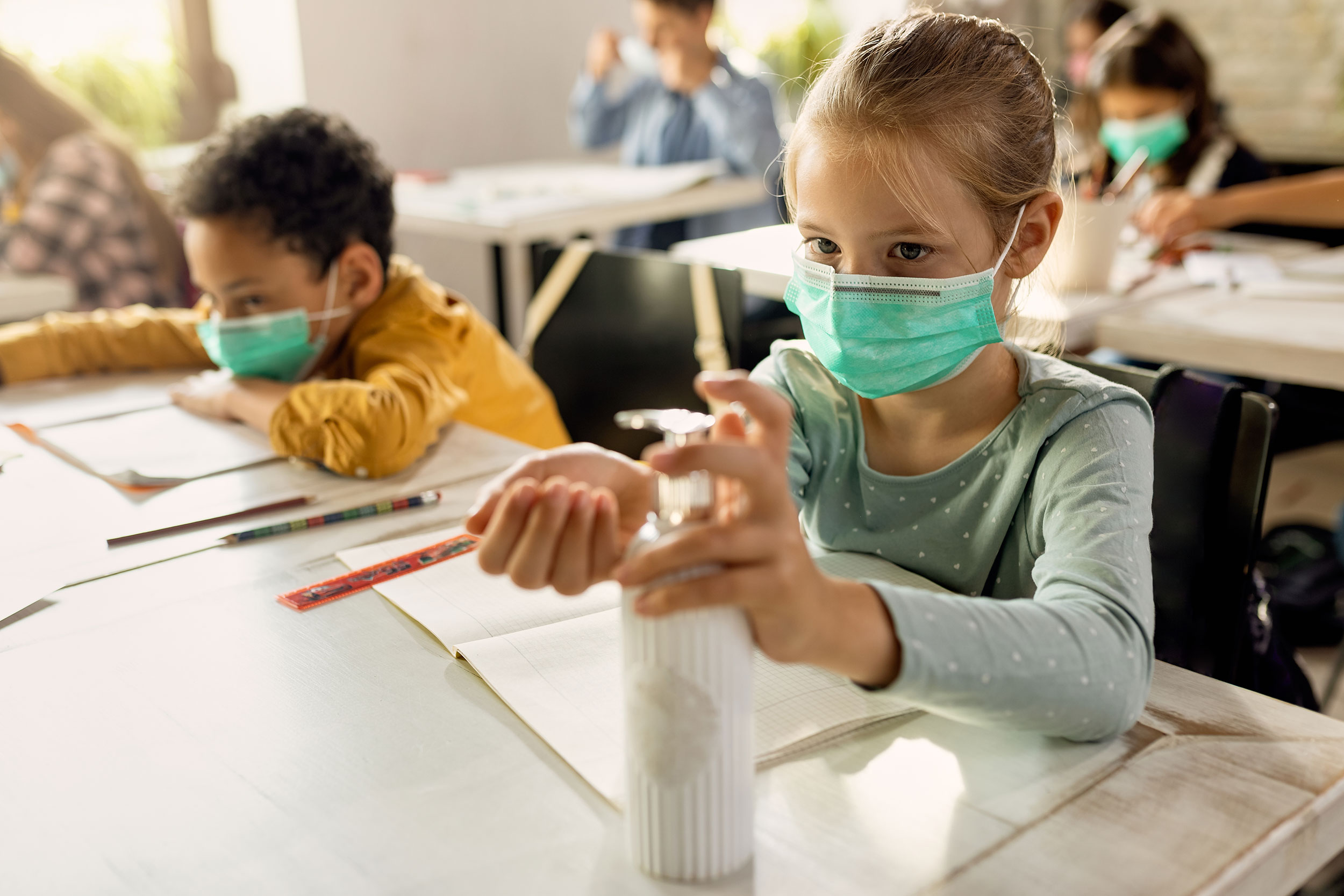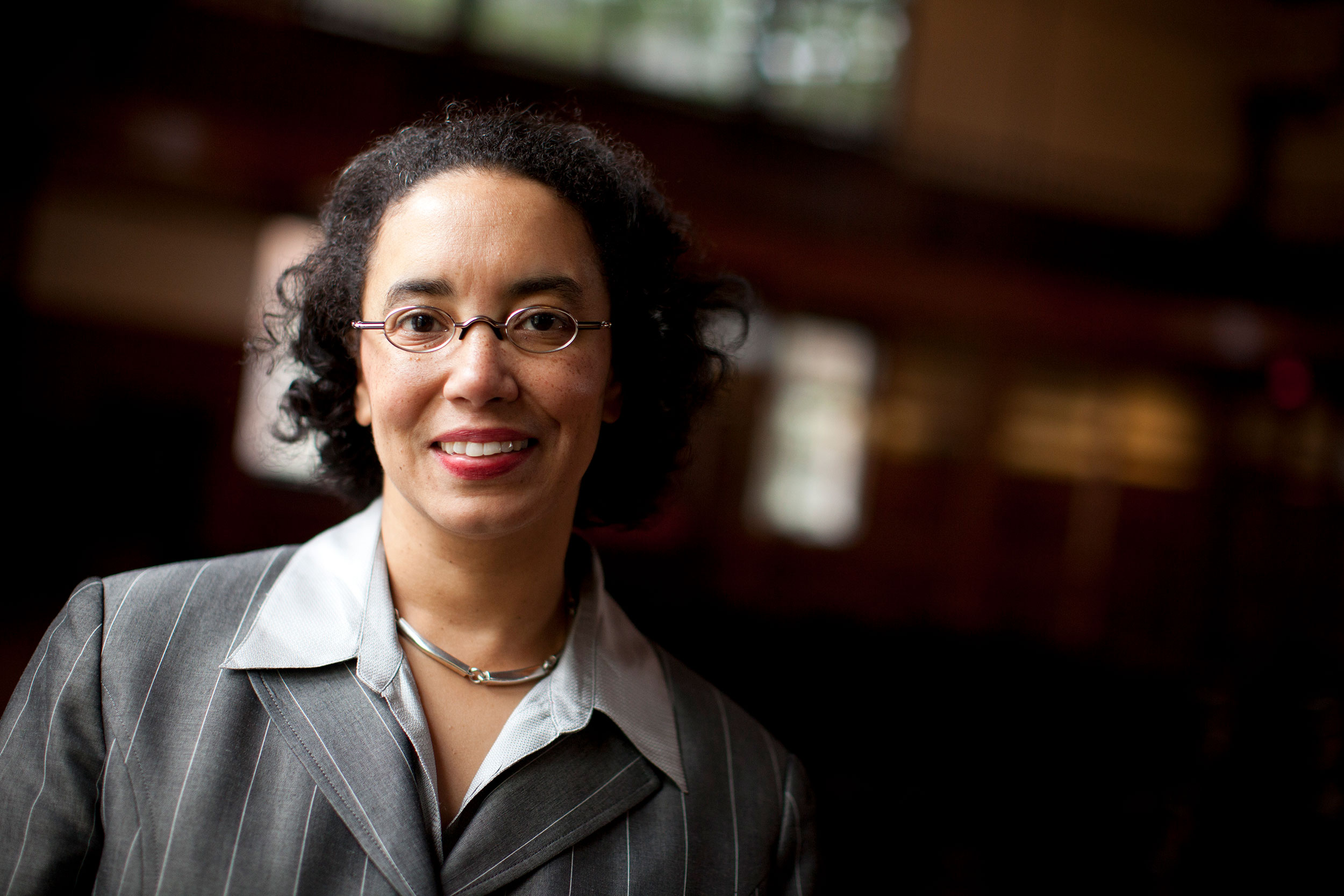
As students return to the classroom, parents should check in with their children and find out what concerns they are carrying.
Drazen Zigic/iStock
How to help your kids with classroom anxieties
Graduate School of Education experts offer guidance as another pandemic school year begins
As children return to school, they will not be the only ones with plenty of homework to do. Parents, teachers, and administrators need to be prepared with strategies to support students who are dealing with anxiety and uncertainty as they start another school year shadowed by the pandemic, according to experts at the Harvard Graduate School of Education.
Most students were at least partially remote last year and academic progress was all over the map. This year is expected to be more in-person, and students are returning with concerns about whether they’re going to fit in and whether they can keep up in classes, said Nancy E. Hill, Charles Bigelow Professor of Education.
“The first thing parents can do is listen and affirm,” said Hill, a psychologist who studies parenting and adolescent development. “Parents should take the time to ask their children how they’re feeling about going back to school, what they are excited about, what they are worried about, and what we can do to help allay their concerns. Even in the asking, there’s an affirmation and understanding that this is a difficult period.”
Teachers and administrators should have a blueprint to help students figure out how they are going to make up for missed work, but such plans should not emphasize shortcomings, Hill said. Students may be apprehensive about learning loss, teachers’ expectations, and lagging behind their classmates.
“I think one of the chief academic anxieties that many students are going to feel is this pressure and sense that somehow they’re behind,” Hill said.
Teachers should brace for a challenging year as they struggle to guide students who are reeling from isolation, loneliness, and anxiety brought on by the pandemic. Some students may also be experiencing grief if they have lost loved ones to COVID or had family members who were very sick.

“I think one of the chief academic anxieties that many students are going to feel is this pressure and sense that somehow they’re behind,” says psychologist Nancy E. Hill, Charles Bigelow Professor of Education.
Stephanie Mitchell/Harvard file photo
“There are some kids who have endured traumas of one kind or another,” said Rick Weissbourd, a senior lecturer at HGSE. “There are a lot of different things going on, and it varies a lot by race and class.”
Parents and teachers should pay extra attention to students’ mental health, said Weissbourd, who is also the director of Making Caring Common, a national effort to foreground moral and social development in child-raising. Parents must work hard to “disentangle” their concerns from those of their children and to help them manage anxiety.
“What parents are worried about may not be what kids are in fact worried about,” said Weissbourd. “It’s important for parents to inquire, find out, and listen to what kids are concerned about.”
It’s equally important that parents reconnect with teachers and start building relationships to create strong school communities. On its website, Making Caring Common includes a relationship-mapping strategy to help teachers and students solidify ties.
“The relationship-building and the community-building are critical every year, but are going to be especially critical this year,” said Weissbourd.
Many schoolchildren may fear that their relationships with peers, teachers, and caregivers were altered by the pandemic, and those connections are key to their learning and development, said Junlei Li, Saul Zaentz Senior Lecturer in Early Childhood Education, and co-chair of the Human Development and Education Program. Younger students in particular need to feel that they are accepted and that they belong, he added.
“Children need to feel they’re welcome as they are, that their teachers want them there, and that they’re not behind — because when you tell them they’re behind, you’re actually telling children they don’t belong there,” said Li. “Learning and development can be built on the foundation of belonging and finding a place for yourself.”
For teens, friendships are especially important because they help their socio-emotional development, said Hill. Parents should do everything they can to give their teenagers time and space to reconnect with friends, without diminishing their own relationships with their children.
“I would encourage parents to reach out and make intentional connections with their teens and not look at them and think, ‘Oh, they’ve grown. They’ve got it all together,’” said Hill. “Warmth, love, and care, and all those warm feelings that we sometimes think teens don’t need — they need them more than ever.”




